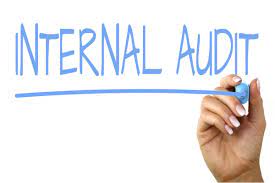An Overview of Different Types of Assurance Engagements
Introduction
In the world of accounting and auditing, assurance engagements are vital in providing stakeholders with confidence in the information presented by an entity. Broadly, these engagements involve an independent examiner (often an auditor) assessing various aspects of an entity’s operations or financials and issuing a report. This article delves into the different types of assurance engagements, shedding light on their purposes, methodologies, and the value they add to businesses and stakeholders.
Financial Statement Audits
One of the most recognized forms of assurance engagement is the financial statement audit. This involves an independent auditor evaluating a company’s financial statements to determine whether they present a fair and accurate view of the entity’s financial position and performance, in accordance with applicable accounting standards. This type of engagement is crucial for investors, creditors, and other stakeholders who rely on financial statements for decision-making.
Reviews of Financial Statements
A review engagement is less extensive than an audit but still provides a level of assurance. Here, the auditor conducts analytical procedures and inquiries to ascertain whether the financial statements are free of material misstatement. This type of engagement is often suitable for smaller entities or when a full audit is not required but some level of assurance is still desired.
Compliance Audits
Compliance audits are critical in verifying a company’s adherence to established procedures, rules, and regulations, whether imposed externally or developed internally. These audits are particularly vital for companies in highly regulated sectors like banking and healthcare, where compliance with legal and regulatory frameworks is essential. Through these audits, auditors examine if a company is meeting its regulatory obligations and following the necessary protocols, thereby safeguarding the entity against legal risks and ensuring ethical operations. This type of assurance engagement is key to maintaining a company’s integrity and trust in industries where regulatory compliance is non-negotiable.
Operational Audits
Operational audits are a key tool for assessing an organization’s operational effectiveness and efficiency. These audits thoroughly examine the internal processes, procedures, and systems to verify that they function as expected and align with the organization’s goals. Areas such as supply chain management, IT systems, and human resources are often the focus of these evaluations. By doing so, operational audits help identify areas of improvement, ensuring that the organization’s operations are optimized and contribute effectively to achieving its strategic objectives. This kind of audit is essential for maintaining operational excellence and competitiveness in the business environment.
Integrated Audits
Integrated audits are a comprehensive form of assurance engagement, crucial for publicly traded companies. They serve a dual purpose: firstly, to assess the accuracy and fairness of financial statements, and secondly, to evaluate the effectiveness of internal controls over financial reporting. This holistic approach ensures not only the reliability of financial information but also the robustness of the processes that produce this information. Particularly in regions where legal mandates require such audits, integrated audits are essential. They offer investors and other stakeholders a more in-depth understanding of a company’s financial health and operational integrity.
Assurance on Non-Financial Information
Increasingly, assurance engagements are being conducted on non-financial information. These include sustainability reports, corporate social responsibility (CSR) initiatives, and internal control systems. Such engagements help organizations demonstrate their commitment to ethical, environmental, and social standards.
Conclusion
In conclusion, assurance engagements play a critical role in the business environment by providing independent verification of various aspects of an entity’s operations. From financial statement audits to compliance and operational audits, each type of engagement serves a unique purpose and adds significant value. As the business world evolves, so does the scope of assurance engagements, expanding to include non-financial areas and addressing a broader range of stakeholder concerns. Understanding these different types of engagements helps stakeholders make informed decisions and enhances the overall trust and transparency in the business and financial landscapes.
